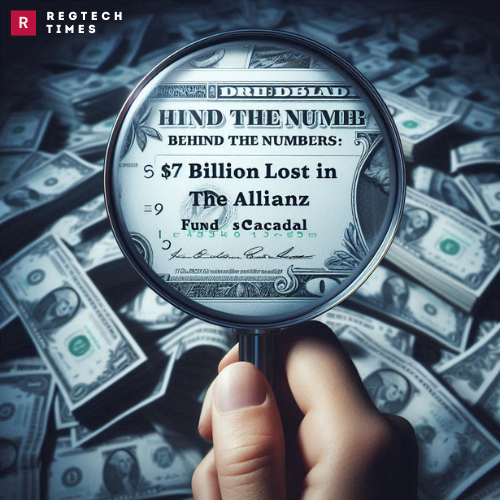Trust serves as the foundational cornerstone upon which investments are constructed within the complex realm of finance. However, the revelation of fraudulent activities within the investment realm often shatters this trust, leaving investors reeling from substantial losses. Such was the case with the recent scandal involving former Allianz fund manager Gregoire Tournant, whose actions led to the collapse of private investment funds and incurred losses estimated at a staggering $7 billion for investors.
The Genesis of the Allianz Fund Scandal
Following the market upheaval induced by the COVID-19 pandemic in 2020, the collapse of the German insurer’s Structured Alpha funds emerged, representing one of the crisis’s most notable casualties. At the heart of the scandal was Tournant, the chief investment officer tasked with overseeing these funds. What began as a purportedly protected investment avenue for investors soon unraveled into a web of deceit and financial mismanagement.
Tournant’s Admission of Guilt
Tournant’s culpability was emphasized by his recent confession before Chief Judge Laura Taylor Swain of the federal court in Manhattan, where he acknowledged two charges of investment adviser fraud. This admission shed light on a scheme that involved misleading investors about the risks associated with the Structured Alpha funds, altering performance data, and deviating from promised hedging strategies. Additionally, Tournant was found guilty of obstructing a U.S. Securities and Exchange Commission (SEC) probe by orchestrating deceitful tactics.
Impact on Investors
The magnitude of Tournant’s actions reverberated across the investment landscape, causing irreparable harm to numerous institutional investors, including pension funds managing the retirement plans of Arkansas teachers, Milwaukee city employees, and New York City subway workers. These investors, lured by the promise of protected investments in times of market volatility, found themselves grappling with substantial financial losses.
Legal Consequences and Allianz’s Admission
The repercussions extended beyond Tournant’s guilty plea. Allianz Global Investors U.S., the firm Tournant was associated with, also faced legal consequences. In May 2022, the firm pleaded guilty to securities fraud, agreeing to pay approximately $6 billion in penalties and restitution to affected investors. This admission highlighted systemic failures within the firm, including the lack of internal controls and oversight for its private-investment funds.
Ethical Breaches and Legal Proceedings
Moreover, Tournant’s guilty plea and the subsequent unraveling of the scandal brought to light ethical breaches within the legal proceedings. Tournant accused federal prosecutors of manipulating his legal representation, turning his own lawyers against him, and leveraging privileged communications to build a false narrative. Despite his attempts to dismiss fraud charges against him, Judge Swain upheld the case, citing a joint defense agreement Tournant had entered into with the firm’s counsel.
The saga of the Allianz fund scandal serves as a cautionary tale, emphasizing the critical importance of transparency, accountability, and ethical conduct within the financial industry. It highlights the devastating consequences of unchecked greed and deception, which not only erode investor trust but also have far-reaching implications for financial stability and market integrity.
As Tournant awaits sentencing and investors grapple with the aftermath of their losses, the case serves as a reminder of the need for robust regulatory oversight and stringent enforcement measures to safeguard investor interests. It highlights the imperative for financial institutions to prioritize integrity and ethics in their operations, thereby upholding the fundamental principles of trust and accountability upon which the financial markets thrive.
In the aftermath of the Allianz fund scandal, stakeholders across the financial spectrum are left grappling with the fallout, striving to rebuild trust and restore confidence in an industry tarnished by deceit and betrayal. Only through a concerted effort to uphold the highest standards of integrity and transparency can the wounds inflicted by such scandals be healed, paving the way for a more resilient and trustworthy financial ecosystem.


